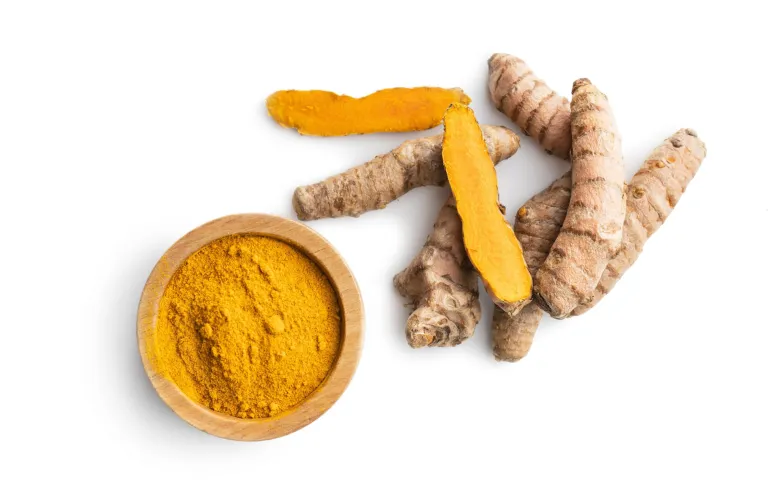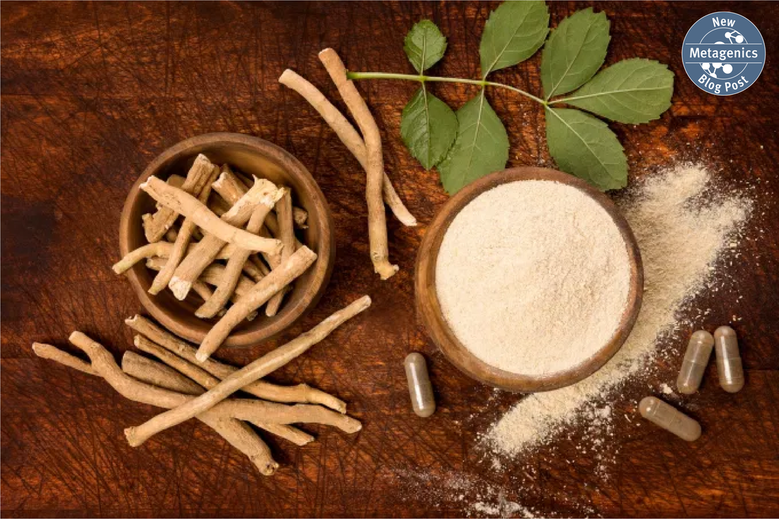|
Written by Jo Herbert-Doyle
Did you know that your gut and your brain are in regular conversation? They have a pretty close relationship, with your mental state influencing gut function and vice versa. Perhaps you’ve experienced ‘butterflies in your stomach’, or felt nauseous before an event? Or felt your mouth water upon seeing or smelling a delicious meal? These are all very real phenomena and due to your mind-gut connection. Less ideal is how feeling under pressure or stressed decreases digestive function – this is because when your body-mind perceives ‘danger’ (which is what stress is from a physiological sense), then it’s not a priority to be eating, therefore digestion suffers and you may experience bloating or heartburn or some other uncomfortable symptom. Knowing this mind-gut link exists can help explain how feeling anxious may impact how your gut is functioning, but perhaps more significant (though not as well known) is that what’s going on in your gut could also be impacting your mental health. Lighting a Fire in the Brain Though the causes may be multifactorial, a key player in this situation is gut-derived inflammation. This can result from dysbiosis, which is an imbalance in your gut microbiota (the microbial life that resides within your intestines), and/or some degree of insult to the digestive tract lining – your gut ‘barrier’. Both your gut barrier and your microbiota work synergistically to support effective digestion, immune health, and overall wellbeing. However, if they become disrupted then biochemical signals or ‘cytokines’ are released that travel throughout your body causing what’s referred to as oxidative stress in any number of tissues in your body including your brain. Though many of these cytokines cannot cross what’s called the blood-brain-barrier, their presence triggers similar ‘alarm’ signals in the brain so it too is impacted by its own inflammatory processes. This sequence of events can be why symptoms such as poor mood, brain fog and anxiety occur; but for those who want a more specific example – inflammation can promote the neurotransmitter precursor tryptophan to produce quinolinic acid1 instead of serotonin and melatonin – the former situation leading to what can most simply be described as nerve cell ‘agitation’ that can present as anxiety.2 Soothe Your Gut to Settle Your MindAs gut health is fundamental to all aspects of wellbeing then any symptoms really need to be attended to – and to do that with the least guesswork then my recommendation is to see a natural healthcare Practitioner who can help you navigate what may be the contributing causes for you, e.g. do you need to tweak your diet? Get some help with digesting certain foods? Heal your gut barrier? Equally, if you are struggling with stress, sleep, or experiencing regular mood problems then speak to your Practitioner about this too – there are many natural medicine solutions available, but to find the best ones for you will require assessing your personal situation first. Is it too Early to Rely on Psychobiotics? If you are already a fan of natural medicine you may be wondering what the role of probiotics are in this, particularly as there is emerging talk of ‘psychobiotics’ or probiotics that can impact mood. This is clearly of interest to those who may be experiencing stress or anxiety, so I’d say to you that the human evidence for what may be the ‘best’ probiotic strain and at what dose to help is still in its infancy; but watch this space for future research developments. What we do know currently is that supporting whole gut health by decreasing gut-derived inflammation and increasing the diversity of the gut microbiota is a proven clinical approach to whole-body wellbeing – and this includes improving mental health. So if you experience symptoms impacting either your mind or your gut, please don’t put up with them any longer, or try to figure it all out on your own. Contact your Clinical Naturopath or Integrative Doctor and let them know what’s going on, so they can personalise a solution for your situation. References1 Lugo-Huitrón R, Muñiz PU, Pineda B, Pedreaza-Chaverri J, Rios C, Pérez-de la Cruz V. Quinolinic acid: an edogenous neurotoxin with multiple targets. Oxidative Medicine and Cellular Longevity. 2013;Article ID 104024, 14 pages. Available from: https://www.hindawi.com/journals/omcl/2013/104024/ 2 Bryleva EY, Brundin L. Kynurenine pathway metabolites and suicidality. Neuropharmacology. 2017 Jan;112(Pt B):324-330. doi: 10.1016/j.neuropharm.2016.01.034. Epub 2016 Jan 26. Available from: https://www.sciencedirect.com/science/article/pii/S0028390816300338
0 Comments
By Cassie Story, RDN
We are social creatures. Hardwired in our being is the desire to belong, fit in, and play with our fellow humans. In fact, survival depends on our ability to bond. So what happens to your mental state when you remove yourself from others over the course of a year and a half? While long-term data on the mental health implications of isolation are currently being studied, we do have short-term studies emerging, which evaluated mental health concerns over the past year. A new phenomenon has occurred for workers who have been utilizing online video platforms for a majority of their day-to-day work. “Zoom fatigue” may have inadvertently activated the fight or flight system within the brain.1 This is according to a recent report from Stanford that offers four potential aspects of Zoom fatigue and the unintended psychological consequences that follow.1 With this knowledge, it is important to recognize the spectrum of emotions that you might be feeling as you prepare to “get back” into the real world—to step out from behind the screen and live life again. This article identifies common emotions that you may be experiencing, effective mantras for change, and supportive nutrients that can play a role in taking you from feeling blah to rah! Emotional state: fear & anxietyIt is understandable to have some lingering fear and anxiety about social reentry. Due to our constant connection to news and information, many people have likely experienced some level of fear and anxiety that is atypical for themselves over the past year. It wouldn’t be realistic to expect yourself to go from living in that state of mind, to complete joy and jubilation. Mantra: I am safe Supportive nutrients: palmitoylethanolamide (PEA) and hemp PEA is a bioactive lipid molecule that the body produces naturally and is found in the lipid extracts of foods.2 PEA has been researched for over 70 years and has a wide range of clinical applications from mild bodily discomfort and immune system support to mood and neurological health.2-6 Full-spectrum hemp is sourced from aerial plant parts including the stalk, stems, seed, and flower of the hemp plant and contains beneficial phytocannabinoids and terpenes. They work together to produce a synergistic effect on the endocannabinoid system, which has been found to support a healthy stress response and has positive neurological benefits.7 Emotional state: stressLoneliness and isolation have been found to increase stress levels in the body.8 Couple that with uncertainty about the future and worry for your own health and wellbeing, as well as that of your friends and family, and this creates a perfect brew for stress to thrive. Are you ready to reclaim your balance? Mantra: I am at peace Supportive nutrient: phosphatidylserine Phosphatidylserine is an important phospholipid in the brain and a key building block of nerve cell membranes.9 Research suggests that it may support mental focus and help support a healthy endocrine response to acute mental stress.10 Emotional state: low self-confidence or decline in body imageFor most people, due in part, to our society’s environmental factors of convenience foods and little built-in day-to-day movement, maintaining health and wellbeing requires routine and planning. Removing ourselves from typical day-to-day activities, and increasing a sedentary lifestyle, may lead to undesired weight gain. If you have experienced an increase in body weight, first remind yourself, you are not alone. Second, find something about your body to be grateful for right now. Third, speak kindly to yourself. If you have now found that a majority of your “real life” clothes no longer fit, maybe it is time to implement a supportive weight-loss routine. Mantra: I am strong (or flexible, sexy, healthy) Supportive nutrient: meal replacements Meal replacements are reduced-calorie portion-controlled products often fortified with micronutrients. Studies show that replacing just one or two meals per day with a meal-replacement product produces greater total weight loss, and a greater proportion of participants meet their total weight-loss goals both in the short- and long-term, compared to a low-calorie diet without the use of meal replacements.11 Emotional state: lack of motivationSpending the majority of your time in a seated position, whether the couch or an office chair, can wreak havoc on motivation levels. Going from staring at one screen to the next, between your computer, TV, and phone, can cause a numbness of sorts and lead to lack of desire or motivation to try new things. We are hardwired to want to try new things. Being limited from participating in your favorite activities may have decreased your motivation without your realizing it. Mantra: I enjoy new experiences Supportive nutrients: holy basil, ashwagandha, amla fruit These are a classic blend of Ayurvedic herbs. Holy basil (Ociumum sanctum) leaves and stems contain a variety of compounds including triterpenes (oleanolic and ursolic acid), saponins, flavonoids, and phenols.12 Roots of ashwagandha (Withania somniferum), an herb grown in India, contain withanolides.13 Amla fruit, or Indian gooseberry (Phyllanthus emblica), is rich in vitamin C, a potent antioxidant.14 Research suggests these adaptogens may support the body in adjusting to various stressful environmental challenges.15 These herbs may help reduce some of the challenges associated with stress.16 Emotional state: excitementPerhaps you are experiencing a different type of emotion than those listed above. Maybe you are excited and “champing at the bit” to get back out into your typical social life. If you feel that you need some calming support because you just cannot wait to get back out there, here are some things to consider: Mantra: I am calm Supportive nutrients: folate, magnesium, vitamins B12 and B6 Folate & vitamin B12 are cofactors in the synthesis of neurotransmitters, including serotonin.17-18 Serotonin is associated with mood, sleep, and relaxation.19 Vitamin B6 is a factor in the body’s conversion of glutamate, which is a stimulatory neurotransmitter, into gamma-amino-butyric acid (GABA), which is associated with calming and relaxation.20 Magnesium is an essential mineral and acts as a cofactor in numerous metabolic processes. There is evidence that specific nutrients, such as magnesium, may help to promote muscle relaxation and restfulness—possibly playing a role in reducing daily stress levels.21 Conclusion However you are feeling in any given moment is okay. As humans, we experience a multitude of emotions that change throughout the day. If you’ve noticed you haven’t felt yourself lately, remind yourself that every day is a new day—filled with opportunities for growth and change. Be kind to yourself, use the mantras within this article or create your own that speak to you and consider adding the supportive nutrients listed above to your routine if you are seeking nutritional support for your emotional state. References: 1. Bailenson J. Technology, Mind, and Behavior. 2021;2:1. 2. Beggiato S et al. Front Pharmacol. 2019;10:821. 3. PubChem, U.S. National Library of Medicine, National Center for Biotechnology Information. https://pubchem.ncbi.nlm.nih.gov/compound/4671. Accessed September 20, 2019. 4. Passavanti MB et al. Syst Rev. 2019;8(9). 5. Hesselink JM et al. Int J Inflamm. 2019;2013(9). 6. Hesselink JMK. J Pain Res. 2013;6:625–634. 7. Tagne AM et al. Pharmacol Res. 2021:105545. 8. Hwang TJ et al. Int Psychogeriatr. 2020;32(10):1217-1220. 9. Kim H et al. Prog Lipid Res. 2014;56:1-18. 10.Benton D et al. Nutr Neurosci. 2001;4(3):169-178. 11. Heymsfield S et al. Int J Obes Relat Metab Disord. 2003;27(5):537-549. 12. Cohen MM. J Ayurveda Integr Med. 2014;5(4):251-259. 13. Mirjalili MH et al. Molecules 2009;14:2373–2393. 14. Mindell E. New York, NY, Hachette Book Group, 2011. 15. Panossian AG et al. Med Res Rev. 2021;41(1):630-703. 16. Panossian A. Pharmaceuticals. 2010;3:188-224. 17. NIH Office of Dietary Supplements. Office of Dietary Supplements – Vitamin B12. https://ods.od.nih.gov/factsheets/VitaminB12-HealthProfessional/ . Accessed: August 5, 2021. 18. NIH Office of Dietary Supplements. Office of Dietary Supplements – Folate. https://ods.od.nih.gov/factsheets/Folate-HealthProfessional/ . Accessed: August 5, 2021. 19. Young SN. J Psychiatry Neurosci. 2007;32:394-399. 20. Dakshinamurti K. Adv Nutr Res. 1982;4:143-179. 21. de Baaij JH, et al. Physiol Rev. 2015; 95:1-46. Many of us have learned to “trust our gut.” But if we ask most people what our digestive tract is for, they’ll probably explain it as a way of absorbing nutrients and disposing of waste. So where do phrases such as “trusting our gut” or “unable to stomach the results” come from? It turns out there is a two-way street between our digestive organs and our brains. What we eat and the state of our digestive tract can have a profound impact on our moods and behaviors. And probably unsurprisingly at this point, our gut microbiome is also involved.
Our vagus nerves, which control much of our “rest and digest” response, make a direct connection from our brains to our digestive tracts. Incidentally, these nerves also innervate our heart and communicate with our immune systems.1 These nerves help our brains communicate to our stomachs to start releasing stomach acid and digestive enzymes, and they carry signals from our digestive organs that tell our brains whether we’re hungry or full.1 But there’s a whole lot more to the story than these basic logistical messages. Our thoughts and moods are sending signals to our digestive tract (and immune system) and vice versa.1 Have you ever felt nausea from a stressful situation or lost your appetite from bad news? That message was carried from your brain to digestive tract via your vagus nerve.2 What might be news is that the situation in your digestion can also send signals to your brain.2 Is your digestive system reacting with something you ate? That signal is conveyed to your brain and can color the rest of your day or night.2 And to add another layer of complexity, the bacteria and other organisms in our gut can make or simulate neuroactive molecules like gamma-aminobutyric acid (GABA), melatonin, and serotonin.2 As you may know, these substances can make a big impact on our mood and how alert we feel. And stress can change the number of healthy bacteria (such as lactobacilli) in our guts and weaken the digestive tract and blood-brain barriers—letting molecules and even bacteria in that would be excluded under normal conditions.2,3 Conversely, consuming some probiotic species can improve our mood.2 This is all to say, everything is connected. I’ve seen many patients with digestive troubles (myself included) who’ve been told by someone, “It’s all in your head.” This is an oversimplified message, because stress and emotions absolutely play a role in digestive health, and the opposite is also true. Likewise, many patients who come in for issues with their mood have related concerns in their digestion that must be addressed before they see significant progress. Often when it comes to health, the symptoms can lead to the root of the problem, but only when you understand the connections. References:
By Michael Stanclift, ND The rich orange color of turmeric is a signature of this powerfully healthy Indian spice. Even if you don’t dig the flavour of it in food, you might take turmeric in one of its many supplement forms for health benefits. Curcuma longa is the Latin name for turmeric and also hints at the name of the most talked about molecule in it, curcumin. Many people use “turmeric” and “curcumin” interchangeably, but surprisingly there isn’t that much curcumin in turmeric—curcumin makes up only about 3% of dried turmeric.1 But when we’re talking about the health benefits of turmeric, we’re usually really referring to its famous derivative, curcumin, which is the most studied component. So why has this orange molecule become the darling of healthy living? Curcumin offers a host of health perks, is safe, and is well-tolerated by nearly every patient I’ve recommended it to. Many of the effects essentially boil down to curcumin’s ability to function as an antioxidant or balance the immune response to cellular injury.2 It can improve markers of oxidative stress and increase circulating antioxidants, such as superoxide dismutase, sometimes referred to as SOD.2 Curcumin can block the activation of NF-κB, which is involved in the immune response and can lead to undesirable effects.2 So how are these effects meaningful? Here are some of the research-backed ways I’ve utilized curcumin with the patients I’ve seen:
Before you get started There are a few things you should know about curcumin before you run out and start taking it. First, curcumin isn’t very well absorbed, so it is often combined with other natural substances to help improve absorption. I have used it in formulations where it is combined with a black pepper extract (piperine), which can increase the availability about 20 times, and a fenugreek extract, which can increase the availability about 45 times.2,6 The second thing to know is that while curcumin has a great safety record, there have been cases of people taking a curcumin supplement experiencing liver injury.7,8,9 There’s some speculation that the effect may have come from another ingredient, not the curcumin, and many of the products involved contained piperine, the black pepper extract.7,9,10 In response to these concerns, I found a 90-day study of healthy volunteers who were investigated for signs of toxicity when the subjects were given highly bioavailable curcumin (with fenugreek extract).11 With this formulation no adverse effects were noted in the study, and liver enzymes remained within the normal range.11 There are two morals to this story: Always look for manufacturers with a solid reputation and transparent quality testing for their products, and seek the guidance of an experienced healthcare provider to ensure you’re taking the proper precautions and monitoring. In healthy individuals, doses between 150-1,500 mg have been studied and appear to be beneficial, well-tolerated, and safe.5 The European Food Safety Authority (EFSA) is a bit more conservative and established an acceptable daily intake (ADI) of curcumin at 3 mg/kg/day.9 For readers in the United States, that translates to roughly 1.36 mg/lb/day or a dose equivalent to about 205 mg/day of curcumin per day for a 150-pound person. Turmeric, along with its most active component curcumin, is clinically versatile and offers a wide range of health benefits. These qualities make it an attractive candidate to include in your healthy lifestyle. Ask your healthcare provider if you might benefit from turmeric or curcumin! References:
By Cassie I. Story, RDN
What is vitamin B12? Vitamin B12 is a water-soluble vitamin that plays an important role in neurological and hematological functions.1 The majority of bodily cells require vitamin B12, especially ones that undergo rapid turnover like red blood cells (RBC).2 Vitamin B12 is also involved in DNA synthesis and methylation of RNA, as well as Phase I detoxification.1,3 Perhaps one of its most important roles is in relationship to the nervous system and its need for the formation of the myelin sheath, which is found around nerve cells.2 In fact, long-term vitamin B12 deficiency-induced neuropathy can damage nerve cells to the point of irreversible neurologic damage.2 What food sources are rich in vitamin B12?Foods rich in vitamin B12 are primarily from animal sources including liver, oysters, poultry, fish, eggs.2 Some fermented foods like miso and tempeh also contain vitamin B12. However, plant sources of vitamin B12 are likely unavailable for absorption by humans—so special care should be taken by people who avoid or do not consume animal products.2 Absorption considerations In order for food-based vitamin B12 to be absorbed, it must first interact with hydrochloric acid (HCl) and gastric protease in the stomach. These substrates allow vitamin B12 to be released from the protein it is bound to and then to be combined with intrinsic factor (IF), which is secreted by the parietal cells in the stomach. The combined vitamin B12-IF complex travels through the gastrointestinal (GI) tract for absorption in the distal ileum. It is well-established that HCl and IF production decline with age, and certain medications (proton pump inhibitors, metformin) have been found to reduce vitamin B12 absorption in the gut.2,4 Supplementation with vitamin B12 in its free form, or combined with IF, may be more beneficial in preventing or treating a deficiency.2 Bodily storage As vitamin B12 is stored in the liver in high amounts, with estimates being 3-5 milligrams, the majority of individuals are not at high risk for a deficiency.2 Situations in which individuals have difficulty absorbing vitamin B12, such as malabsorptive disorders, lack or decline in the production of HCl or IF, low levels of hepatic storage, or dietary insufficiency, particularly for those who follow a strict vegan diet, are at higher risk of deficiency.1 Typically, there are three causes for a potential vitamin B12 deficiency. These include:1
What happens with a vitamin B12 deficiency? Nutritional deficiency is the main cause for low hemoglobin and red blood cells (RBCs).2 A reduction of hemoglobin in the blood can eventually lead to anemia, a condition that can affect day-to-day living by impacting energy levels.2 Macrocytic anemia can result from low levels of vitamin B12 and presents with typical signs of anemia like pallor and fatigue.1 Jaundice can also be present as a result of impaired RBC formation.1 Certain medications can negatively impact vitamin B12 status, including contraceptive pills. Oral contraception can impact B12 status, without typically producing the above symptoms or neurological damage.3 Some medications have been shown to deplete vitamin B12 including antibiotics, anticonvulsants, metformin, and proton pump inhibitors.2 Diagnosing deficiency Serum vitamin B12 is a standard marker used to evaluate deficiency; however, this may miss 30-50% of vitamin B12 deficiencies in certain people, including those with a history of GI or bariatric surgery.5 For this reason, serum methylmalonic acid (MMA) is the preferred method for assessment and also helps to distinguish between vitamin B12 and folate deficiencies.2,5 Additional markers can include intrinsic factor antibodies (IFAB) and parietal cell antibodies. Differential diagnosis of vitamin B12 and folate deficiencies lie in the measurement of MMA. If both MMA and homocysteine are elevated and vitamin B12 is depressed, this indicates a vitamin B12 deficiency. Alternatively, if homocysteine is elevated but MMA is within normal limits, this may indicate a folate deficiency.1 Physical signs and symptoms of deficiencyIt is estimated that 75-90% of individuals who present with a vitamin B12 deficiency experience neurologic disorders.2 Neurological symptoms present in vitamin B12 deficiency may include peripheral neuropathy, decreased reflexes, ataxia, vibratory sense loss, dementia, psychosis, and altered mood.1,6 Paradoxically, while vitamin B12 deficiency can cause fatigue, it also may induce insomnia.2 Other chief complaints may include glossitis, diarrhea, and headaches.1 In a 24-month randomized and double-blind intervention study that included 168 elderly individuals with mild cognitive impairment, oral supplementation of vitamin B12, folic acid, and vitamin B6 slowed the progression of brain atrophy and the reduction of cognitive performance by 53%.7 How much vitamin B12 is recommended?The common dosage range for treating vitamin B12 deficiency with supplements is 500-2,000 mcg per day and is available as cyanocobalamin or methylcobalamin, which is the active form. Methylcobalamin may be preferred especially for individuals with certain genetic polymorphisms, increased oxidative stress, or digestive conditions of any kind.2 Common repletion recommendations:2,5
When to take and what to take it with? Taking vitamin B12 early in the day with the presence of other B vitamins including folate and possibly calcium is recommended. Avoid taking with alcohol and antibiotics.3 ConclusionAwareness and treatment of vitamin B12 deficiency are important to ensure that individuals are not impacted by its potentially permanent damaging effects to neurological health, as well as to ensure overall health and wellbeing and expected energy levels for daily living. Check with your healthcare practitioner to see if you should be tested for deficiency and how much you should be supplementing with daily. References: 1. Ankar A et al. Vitamin B12 Deficiency. StatPearls. Treasure Island, FL: StatPearls Publishing, 2021. 2. Mahan L, Escott-Stump S. Krause’s Food, Nutrition, and Diet Therapy 10th edition. Philadelphia, PA: W.B. Saunders Company, 2000. 3. Mortimore D. Nutritional Healing. Boston, MA. Element Books Limited, 1999. 4. Miller JW. Adv Nutr. 2018;9(4):511S-518S. 5. Parrott J et al. SOARD. 2016;12:955-959. 6. Shils M et al. Modern Nutrition in Health and Disease. Vol 10th edition. Baltimore, MD: Lippincott Williams and Wilkins, 2006. 7. Gröber U et al. Nutrients. 2013;12:5031-5045. By Melissa Blake, ND
Withania somnifera (ashwagandha) is an important Ayurvedic herb with a long history of use.1 Also known as “Indian winter cherry” or “Indian ginseng,” this beloved herb was traditionally made into a fine powder then mixed with water, milk, ghee, or honey and consumed to promote youth and longevity.1 As an herb with a wide range of potential benefits, ashwagandha has become a popular adaptogen found in many supplement formulas. What is an adaptogen? An adaptogen is a classification given to herbs that have a positive impact on the stress response. In other words, they help you adapt to, or cope with, stress. Ashwagandha is one of the most well-known and best-studied herbal adaptogens. Studies in animals exposed to environmental stress (cold water) and physical stress (endurance swimming) were better equipped to handle the stress and less likely to experience stress-related consequences when taking ashwagandha.1 They were better able to adapt. Point: ashwagandha. Being able to swim in cold water for a long time is a type of stress that is less relevant to humans; however, studies in humans have also highlighted ashwagandha’s adaptogenic properties in ways that matter to us. Participants taking ashwagandha root extract for 60 days reported significant reduction in perceived stress and improvements in general health.2 These are important outcomes, because much of our day-to-day stress is related to our perception of it. If we perceive less stress, we have less stress. Ashwagandha scores again. Studies have also linked ashwagandha with overall lower levels of cortisol.2 Cortisol, often referred to as the “stress hormone,” works best when it is not too high and not too low. High levels of cortisol have been associated with food cravings and an increase in appetite.3 Did you say an increase in appetite? Hmmm. Stress-eat, anyone? Stress eating is an all too frequent way many people cope with high levels of stress, and indulging in too much steamed broccoli is not usually the problem! Stress eating is more often associated with high intake of calorie-rich, nutrient-poor foods (cookies, potato chips, chocolate, you get the picture) and may contribute to weight gain. When you feel stressed, you also feel less like exercising. Can you relate? Double-wham. A study evaluated the benefits of ashwagandha on various stress-related parameters, including food cravings and body weight. After 8 weeks, there was a significant reduction in perceived stress, improvement in self-reported well-being and happiness, fewer food cravings, and even a reduction in body weight.3 Ashwagandha for the win. These results are especially important because they highlight how pervasive stress can be. Too much or poorly controlled stress has the potential to wreak havoc on every system in our bodies.2,3 Even short-term stress can negatively influence mood, sleep, and appetite levels.3 Poorly managed stress that occurs over a long period can decrease immune health.4 Improving the body’s ability to cope and reducing some of the negative consequences associated with stress is a pretty big deal. Ashwagandha has a long history of use. Although animal studies outweigh human trials, evidence suggests this herb as a safe and effective way to support a healthy stress response. Talk to your healthcare provider about how you can include adaptogens such as ashwagandha into your personalized stress resilience plan. References:
Stress can often be associated with anxiety that you may experience on a daily basis. Today, more and more adults and teenagers feel the effects of stress on a regular basis and need help developing healthy coping skills.
Juggling too many tasks and large workloads and constantly being plugged in only adds to the stress load. Some people are even stressed about being so stressed! Despite popular theory, not all stress is bad. A healthy state of stress is described as the “fight-or-flight” response. The “fight-or-flight” response is an important function that helps you in moments of imminent danger. During this response, hormones are released to help prepare appropriate muscles for flight, while energy is diverted from unnecessary places. If you are trying to run away from, say, a bear, your body will divert more energy to using your legs and less on digesting what you ate for lunch. As the name implies, you either fight off the dangerous situation or your run away from it. This type of stress is a healthy bodily response. Fortunately in the 21st century, most of us are not running away from bears. Chronic stress, the type of stress many people experience today, is not at all beneficial. A variety of things contributes to daily stress; everyone has different stressors. Often unhealthy methods are used to alleviate stress, actually making it worse. Chronic stress is detrimental to the body, and toxic methods to alleviate it are harmful as well. However, there are many techniques, mindset changes, and adaptations that can help reduce stress in your life or at least help you to develop better coping skills. Stress reduction
Like exercise, what you eat also affects your stress levels. Eating healthy foods such as fruits and vegetables will help reduce stress. Processed foods, such as potato chips, desserts, refined grains, and fast food, cause fatigue and bloating and often result in an increase in stress. Since chronic stress can produce chemicals harmful to the body, including colorful foods high in antioxidants will help reduce the effects of those chemicals. Look for high-antioxidant foods like goji berries, blueberries, and pecans. Keep in mind the phrase “you are what you eat.” If you want to feel less stressed, opt for a healthy diet. Multitasking A common habit today is multitasking, challenging your brain to do more than one activity at the same time. It also challenges your body to keep up with all of these tasks at the same time without spiraling out of control. If you want to reduce stress, break this mindset and learn to focus on one task at a time. Sometimes we may need to juggle a variety of tasks, but trying to focus on just one task at a time will help to reduce your stress levels. Living in the moment Many people today are incredibly anxious either because they are continuously focused on the future or depressed from dwelling on the past. Trying to live in the moment helps to reduce stress because all that matters is what is happening then and there. Stress reduction is paramount for maintaining a healthy body. Daily activities like eating nutritious foods, exercising, and meditation are easy to integrate and can help immensely with stress reduction. Try making changes one at a time to reduce stress so you too can live a fruitful and happy life. References:
Submitted by the Metagenics Marketing Team Because many adults have fond memories of carefree childhood days spent roaming the woods with their friends, swimming at the creek, or just hanging out eating ice cream after school, it’s hard for them to picture that a majority of today’s children are as prone to stress as a busy executive.
Pressure from parents, teachers, coaches, and peers can cause children to develop anxiety, to have trouble sleeping, and to turn to unhealthy foods and even alcohol or drugs in an attempt to alleviate their pain. Teaching children healthy, constructive ways to handle stress is essential in today’s busy world. Here are eight powerful and practical ways to help your child destress and relax in a world that is often overwhelming:
Submitted by the Metagenics Marketing Team Stress is a six-letter word, and we all have some of it in our lives. However, the way you respond to stress is uniquely yours. Whether the stress you are facing is the good kind, such as planning for a wedding, or the not-so-good kind such as confronting a difficult coworker situation, knowing how you respond to stress (your “stress type”) can help you better support yourself through challenging situations.
Fight or flight? Which one is right? When it comes to stress, perception is everything. That is why your body usually reacts to stress with an instinctive “fight or flight” response—even if there is no actual threat. Levels of the common stress hormones, cortisol and adrenaline, can surge dramatically with tension and affect sleep, mood, performance, and the ability to think clearly—particularly if stress is ongoing.1 By knowing your stress type, you can better determine which methods, such as nutrition and exercise or meditation and mindfulness, can help you tackle the emotional pressure you feel. Types of stress response Which type of stress response rings true with you?
Reference:
Submitted by the Metagenics Marketing Team Deanna Minich, PhD
Have you ever felt like reaching for the pint of strawberry ice cream after a long day at work? Or eating potato chips after an argument with a loved one? Or even craving chocolate when feeling bored or isolated? If you answered “yes” to any of these questions, you might be “stress eating,” or what is commonly referred to as “emotional eating.” Stress eating is turning to food in times of psychological distress as a form of comfort rather than in response to hunger. Whether it’s stress or a specific emotion, like sadness, we may develop a coping response by eating, either overeating or under-eating. In general, emotional eating involves eating nutrient-poor foods, is often repetitive and automatic, and is not connected to body senses of physical hunger, but to an emotional stimulus.1 Some of us are more prone to being high reactors to stress and may be more vulnerable than others.2 Here’s a quick checklist to see whether you might be engaging in stress eating:
Here are some things you can do to break the cycle of stress eating:
Stress eating can be a challenging cycle to break. There are several ways to address the cycle, whether through body awareness, emotional expression, alternative options, better choices, or simply, brain chemistry balance through nutrient sufficiency. Try out a variety of these approaches to see if you feel more empowered in your eating in times of distress. References:
|
Categories
All
Archives
April 2024
|
|
Join Our Community
|
|
Amipro Disclaimer:
Certain persons, considered experts, may disagree with one or more of the foregoing statements, but the same are deemed, nevertheless, to be based on sound and reliable authority. No such statements shall be construed as a claim or representation as to Metagenics products, that they are offered for the diagnosis, cure, mitigation, treatment or prevention of any disease. |












 RSS Feed
RSS Feed